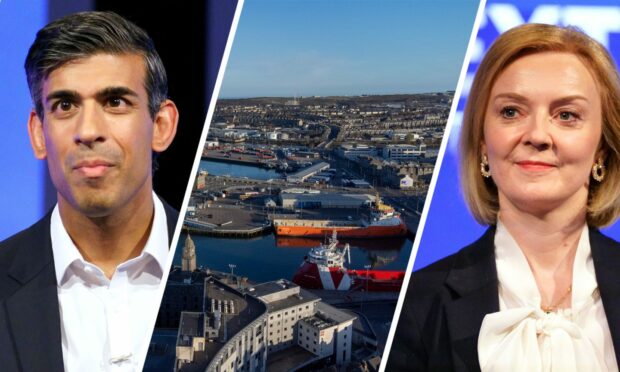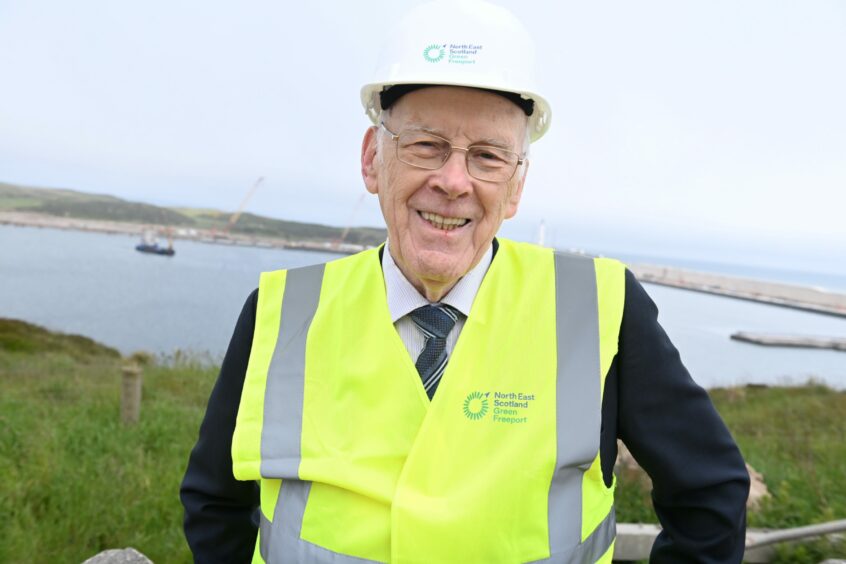A vast majority of Scots say they are in favour of the UK producing its own oil and gas rather than relying upon imports from overseas, according to a poll published as the two who are competing to be elected the UK’s next Prime Minister come to Scotland.
Liz Truss and Rishi Sunak are making campaigning trips across the north and north-east as the Tory leadership race enters its critical final stages.
All you need to know about Sunak and Truss tour of north of Scotland
Ahead of the visit, a Scotland-wide poll commissioned by advisory firm True North found some 85% of respondents believe the UK should meet its own demand for oil and gas in what has been described as sign of “massive” confidence in the North Sea.
Further, 86% of respondents to the poll believe that the UK and Scottish Governments, in conjunction with the energy sector, should take the lead in investing in energy transition, while 63% agree the energy industry has a positive impact on the Scottish and UK economy. Just 11% believe it has a negative impact.
Nearly 60% of people also support future licenses for extracting oil and gas as part of a move to net zero targets.
Renewed green freeport calls
The poll of 1,002 people over the age of 16 in Scotland was undertaken by Survation between 2-9 August.
This comes as campaigners continue to put pressure on policymakers to end oil and gas licencing in North Sea fields including Cambo and Jackdaw.
The positive support came with renewed calls for the north-east to be awarded green freeport status in a bid to unlock jobs potential and investment in low carbon energy.
The region is in competition with other ports groups in Scotland to be named as a green freeport, which also includes a share of £52 million of government funding.
Five areas have made bids to become green freeports under a scheme agreed by the Scottish and UK Governments, but only two will win.
Sir Ian Wood said: “The poll evidences welcome recognition for the great contribution the oil and gas industry continues to make to both the Scottish and UK economies.
“The key task we are now embarked on is to harness the skills, infrastructure and financial capital of this world-class sector to accelerate the transition to new and green energies.
“By backing the North East Green Freeport the UK Government will be doing precisely this and supporting this region’s ambition to reposition itself as the net zero energy capital of Europe.”
‘Oil and gas part of energy mix through transition’
Ryan Crighton, director of policy and marketing at Aberdeen and Grampian Chamber of Commerce, said: “These new figures confirm that investment in energy transition must be a joint venture between government and industry — working to the same end goal, enabling new innovation and breaking down barriers to doing business.
“All reasonable voices know that oil and gas will be part of our energy mix through a period of transition and beyond.
“That will be necessary to sustain jobs and meet our energy requirements. And clearly the public at large back that common-sense approach.”
True North managing partner Fergus Mutch said: “Among the very top priorities for the next Prime Minister will be delivering energy security, investing at scale in renewables and ensuring that Scotland and the UK are world-leaders in the low-carbon revolution.
“The Scottish public has massive confidence in the north-east energy sector, and the positive impact it makes upon the Scottish and UK economies.
“They are acutely mindful of the global circumstances which make it ever-so-important that our domestic oil and gas requirements are met from the North Sea during the transition.
“By awarding green freeport status to Aberdeen and Peterhead, the next Prime Minister can ensure their government seizes a huge opportunity”.
Green freeport bids in Scotland
Other areas vying for a green freeport includes Opportunity Cromarty Firth (OCF), the consortium leading the bid for green freeport status on the west coast.
Orkney Council has also thrown its hat into the ring for an Orkney Green Freeport.
Two further bids in the central belt include the Firth of Forth Green Freeport and the Clyde Green Freeport.
What is a green freeport?
A “green freeport” is a large zoned area within a defined boundary extending around 28 miles (45km) which includes rail, sea or airport.
Operators and businesses in the zone can benefit from a package of tax and other incentives, with supporters saying they fuel economic growth.
The concept has attracted support from across the political spectrum, aside from Greens who do not back green freeports.




Conversation